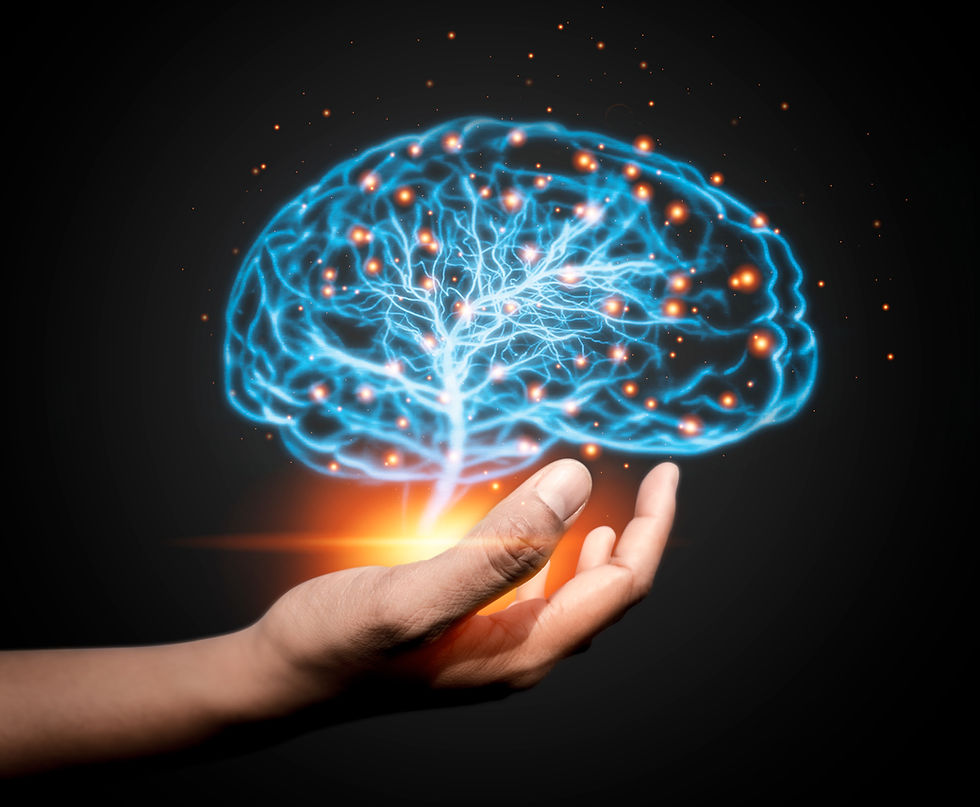One Skill That Creates Mentally Strong Kids -according to a child psychologist
- nanci j bradley
- Jul 8, 2022
- 3 min read

Thanks for stopping by! The fact that you believe mental health matters and you have the power to promote it makes you an elite provider in my mind. Whether you're a teacher, parent, grandparent, early childhood educator, headstart teacher, healthcare provider, or administrator, you are crucial to the mental health of the children and therefore the society they create. You rock!
The hand that rocks the cradle, rocks the world!-Nanci J Bradley
One thing I've noticed over my 43+ year career as an early childhood and parent educator is that hopeful adults tend to create hopeful children.

And that early childhood professionals tend to be hopeful and optimistic people. Otherwise, I believe we probably wouldn't have chosen this field with so much potential to change the world alongside poverty-level wages and backbreaking work. Not to mention that even when we obtain college degrees we aren't always treated with the respect and awe we deserve.
According to Michele Borba EdD, child psychologist and author of Unselfie: Why Empathetic Kids Succeed in Our All-About-Me World and Thrivers, The Surprising Reasons Why Some Kids Struggle and Others Shine, HOPE is the skill that translates to success in adults.
Yes, hope! And it's absolutely teachable. And much, much easier when it's done in the first 3 years of life.

In the first few years of life, more than 1 million new neural connections form every second. After this period of rapid proliferation, connections are reduced through a process called pruning, which allows brain circuits to become more efficient. In light of these findings, focussing on early childhood only makes sense. -Center for the Developing Child, Harvard University-
One of Borba's top ten ways to teach hope is through the use of mantras. That makes a lot of sense. Research shows that very young children make connections in their brains through repetition. When a neural connection is formed and then used repeatedly, it can become the brain's default pathway.
Here's a list of short phrases (mantras) that I find particularly helpful when working with young children. These phrases, when used often, will help connect the right and left hemispheres of their brains leading to the development of positive pathways between emotions, language, and eventually logic.
Be safe
Be kind
Be gentle
Espera ( a Spanish word that translates to wait and hope in English)
They’re using that!
Find another way.
Find a way to include them.
You waited. That was helpful!
You figured it out!
Listen! This is what peace sounds like!
Good people come in all different shapes, sizes, colors, clothing, genders, ages and abilities
We celebrate good people and good attitudes
You're a good person.
In over 43 years of boots-on-the-ground work with our youngest children and their families, I've found the above mantras to work well. They are positively stated, brief, clear, and useful.
I've also included my mantras designed especially for the adults who care for our youngest here. Take a look for a feel-good moment. You definitely deserve it!
If you want a free slideshow collection of 22 more developmentally appropriate short phrases to Get Kid To Listen Without Yelling Or Time-Outs, join our community of elite parents and providers here.
You'll get the slideshow right away and you'll stay in the loop for lots of good ideas to come.
Nanci J Bradley is an early childhood and family educator, author, teacher, family aerobics instructor, and an all-around fun-loving person. She believes in the power of sleep, healthy eating, lifelong learning, and most of all, PLAY! She studied early childhood ed at Triton College and received her BS in education in 1986 from NIU. She received her MA in human development from Pacific Oaks College in 2009. She lives and teaches in Madison WI.

citations
Borba, Michele. Thrivers: The Surprising Reasons Why Some Kids Struggle and Others Shine. G. P. Putnam's Sons, 2022.
Borba, Michele. Unselfie: Why Empathetic Kids Succeed in Our All-about-Me World. Touchstone, 2016.
“Center on the Developing Child at Harvard University.” Center on the Developing Child at Harvard University, 4 Dec. 2017, https://developingchild.harvard.edu/.






Comments